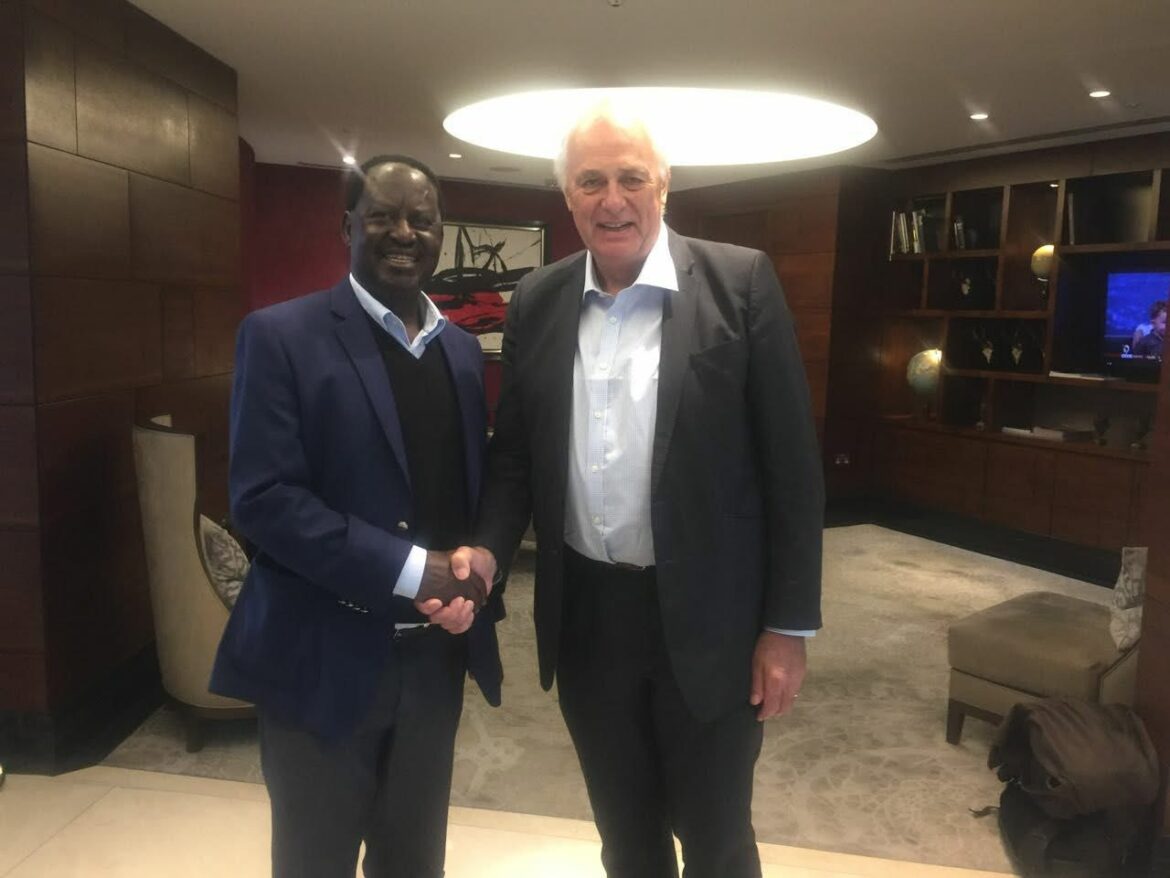The Web of Influence: Malloch Brown, Smartmatic, and Kenya’s Electoral Manipulation
Lord Mark Malloch Brown, a British diplomat with a storied career, has shaped global politics through his roles as Kofi Annan’s Deputy Secretary-General at the United Nations, president of the Open Society Foundations, and chairman of Smartmatic.
He led the Open Society Foundations (OSF), bankrolled by George Soros, from January 2021 to June 2024. Under his leadership, OSF, a major global funder, accused of pushing a globalist agenda, meddling in sovereign nations’ affairs by promoting controversial issues like Feminism, LGBTQ rights, often seen as clashing with local cultural values. OSF’s funding, including support for figures like Kenyan activists Boniface Mwangi, Willy Mutunga, Hussein Khalid and Martha Karua serves as a tool to destabilize governments and advance Western interests.
Allegations also swirl around OSF’s role in influencing elections, with claims it backs candidates and movements to install pliable leaders, or puppets.
Malloch-Brown’s tenure focused on reshaping OSF’s strategy, raising concerns about its overreach in shaping global politics.
His deep involvement in Kenya, particularly during the 2008 post-election crisis and the 2022 election, reveals a calculated effort to influence the country’s political landscape, leveraging Smartmatic’s technology and local actors like Boniface Mwangi and Hussein Khalid.
This article traces Malloch Brown’s impact on Kenya, exposing a network of electoral manipulation and political agendas.
In the chaotic wake of Kenya’s 2007 election, the shadowy influence of Lord Malloch-Brown, a British diplomat with deep ties to global power structures, exemplified the enduring grip of colonial meddling in African politics. Through his close relationship with former UN Secretary-General Kofi Annan, Malloch-Brown orchestrated the mediation that birthed the Kibaki-Raila coalition, a move less about Kenyan stability and more about entrenching Western-backed puppets.
Annan’s peace talks, heavily steered by Malloch-Brown’s diplomatic maneuvering, pressured President Mwai Kibaki and opposition leader Raila Odinga into a power-sharing deal that conveniently aligned with foreign interests. Malloch-Brown, drawing on his UN experience and elite connections, engineered a framework that masked neocolonial control as reconciliation, ensuring Raila’s elevation as a pliable figurehead in a Western-scripted political order.
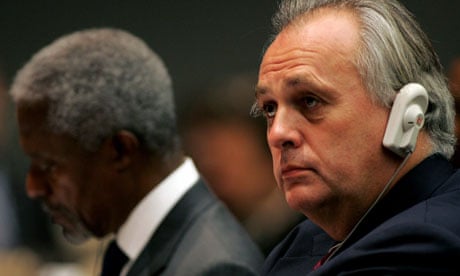
Internationally-renowned election rigging expert Lord Malloch Brown as Koffi Annan’s advisor
The creation of the Prime Minister role for Raila Odinga in April 2008 was not a triumph of Kenyan agency but a calculated imposition by Malloch-Brown and his international allies. By manipulating Annan’s mediation, Malloch-Brown secured Raila’s position as Prime Minister, a role designed to pacify unrest while tethering Kenya’s governance to foreign agendas. This intervention, cloaked in the guise of diplomacy, stripped Kenya of true sovereignty, installing Raila as a cog in a machine driven by external overlords.
Malloch-Brown’s actions laid bare the insidious reality of African nations as battlegrounds for colonial powers, with local leaders like Raila reduced to pawns in a game of global control, their authority granted not by the people but by the machinations of figures like Malloch-Brown.
Smartmatic’s Role in Election Rigging in Venezuela and Involvement in Kenya’s 2022 Election: A Speculative Analysis
Smartmatic’s Track Record in Venezuela
Smartmatic, a global election technology company, has been at the center of controversy for its role in manipulating electoral processes in Venezuela. Founded in 2000, the company provided electronic voting systems for Venezuela’s elections starting in 2004, during Hugo Chávez’s presidency. While Smartmatic initially gained trust for modernizing Venezuela’s voting system, accusations of rigging emerged as the country’s political landscape grew authoritarian.
In 2017, Smartmatic’s CEO, Antonio Mugica, admitted that turnout figures announced by the National Electoral Council (CNE) during the Constituent Assembly election were inflated by at least one million votes. This confirmed suspicions by opposition groups and international observers that Smartmatic’s technology was used to manipulate results in favor of the ruling regime. The company’s systems, including electronic voting machines and software for tabulating results, were exploited to alter voter turnout and outcomes, ensuring victories for Chávez and later Nicolás Maduro.
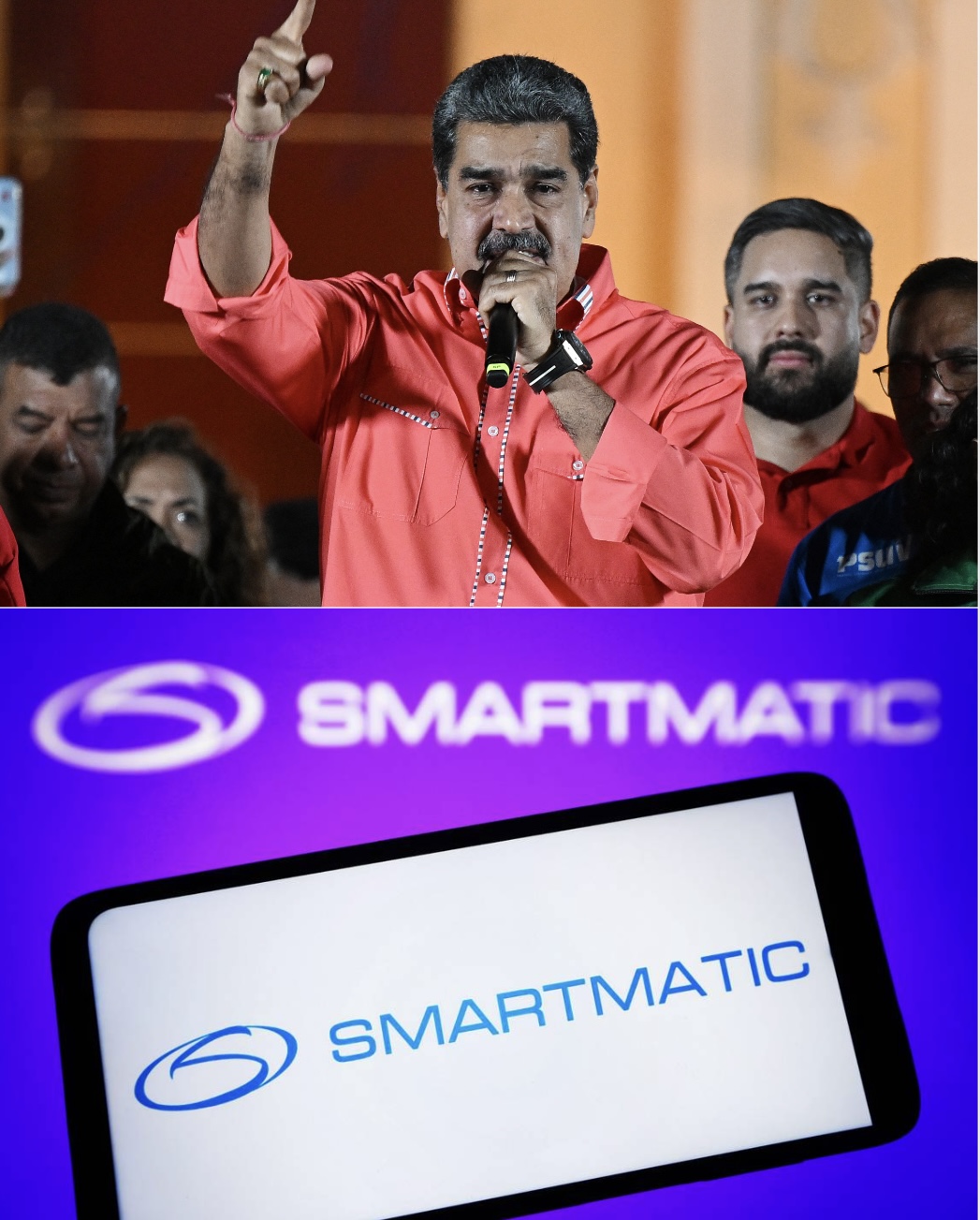
Even with the glaring evidence of electoral fraud in the Venezuelan elections, Uhuru Kenyatta and Raila Odinga imposed SmartMatic on IEBC
Critics highlighted mechanisms through which Smartmatic’s systems were manipulated. The lack of robust auditing processes, limited transparency in vote tabulation, and the company’s ties to Venezuelan officials raised concerns.
Smartmatic’s proprietary software allowed real-time data transmission, which, without oversight, could be intercepted or altered. The absence of verifiable paper trails in some instances made cross-checking electronic results difficult. These vulnerabilities, exploited by Smartmatic or state actors, fueled accusations of systemic fraud.
Smartmatic ceased operations in Venezuela after Mugica’s admission, citing government misuse of its technology. The damage to its reputation persisted, with reports, including a 2024 user statement claiming Smartmatic “helped manipulate all election results in Venezuela,” reflecting distrust. This history of election rigging in Venezuela forms the backdrop for concerns about Smartmatic’s involvement in Kenya’s 2022 election.
Raila Odinga’s Connection to Smartmatic and the 2017 Meeting
In 2017, Raila Odinga, leader of Kenya’s National Super Alliance (NASA), met Lord Mark Malloch-Brown, Smartmatic’s chairman, as documented on Odinga’s social media. The meeting raised concerns due to Smartmatic’s reputation in Venezuela. Malloch-Brown, a former British diplomat and UN official, had overseen Smartmatic’s global expansion since 2014.
The discussion focused on election technology, with Odinga exploring ways to ensure transparency in Kenya’s electoral process after the contentious 2017 election, which he successfully challenged in court over irregularities.
Odinga’s engagement with Malloch-Brown aimed to leverage election technology for Kenya’s 2022 election. Odinga, aware of Smartmatic’s history in Venezuela, saw an opportunity to use its technology to gain an electoral advantage. Odinga facilitated Smartmatic’s entry into Kenya, believing its systems could be manipulated to favor his Azimio la Umoja coalition in 2022.
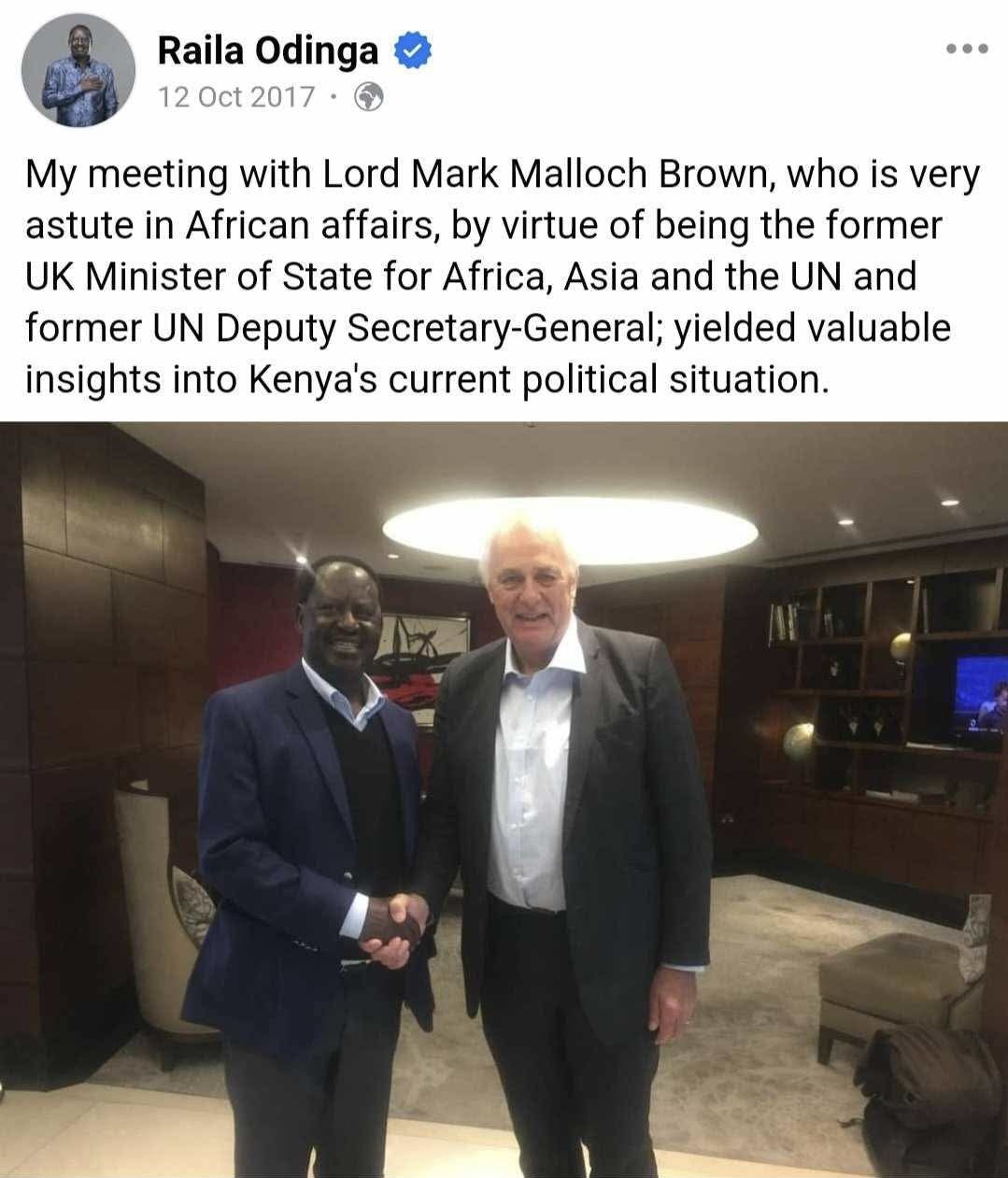
Raila Odinga and Smartmatic Chairman Lord Malloch Brown scheming on how to influence IEBC tenders in 2017
Smartmatic “won” the tender to provide the Kenya Integrated Elections Management System (KIEMS) for 2022 after Uhuru Kenyatta induced late IEBC Chairman Wafula Chebukati and CEO Marjan Hussein Hassan to influence the tender, supplying technology for voter registration, verification, and result transmission.
Concerns arose after three Venezuelans – Jose Gregorio Camargo Castellanos, Joel Gustavo Rodriguez Garcia, and Salvador Javier Sosa Suarez – were arrested at Jomo Kenyatta International Airport in July 2022 with election materials, including laptops, flash drives, and KIEMS kit stickers.
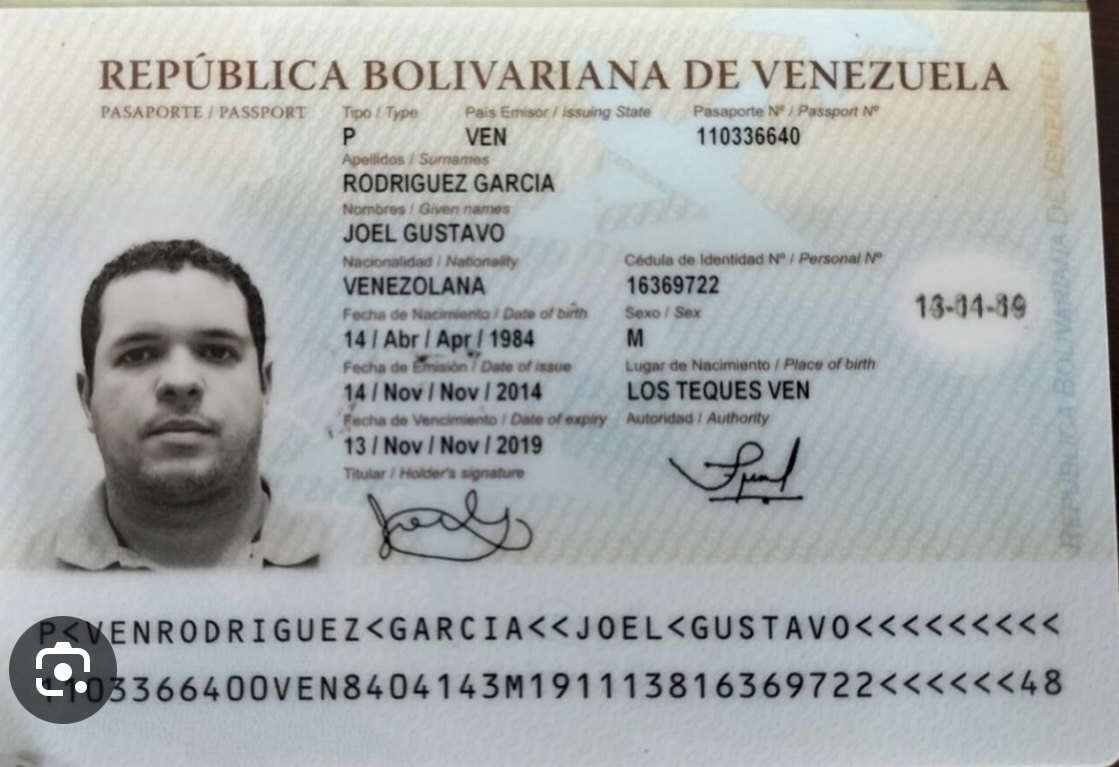
Passport copy for one of the Venezuelans flown in to Kenya to rig the 2022 elections
The Independent Electoral and Boundaries Commission (IEBC) invested in the outcome of the polls, clarified they were Smartmatic employees, but the incident fueled suspicions, with Odinga claiming “foreigners from Venezuela” were involved in a plot to rig the election. Indeed that’s exactly what they came to the country to do, lend their rigging expertise to William Ruto.
Speculative Fiction: Odinga’s Miscalculation and Ruto’s Counter-Move
Odinga’s infinite stupidity where he brought Smartmatic to Kenya was a calculated gamble. Knowing the company’s history in Venezuela, he believed Smartmatic’s technology could be manipulated to secure his victory in 2022, his fifth presidential bid. The plan relied on controlling the electoral process to ensure Smartmatic’s systems favored his coalition.
Backed by outgoing President Uhuru Kenyatta, Odinga’s coalition had influence over state machinery, facilitating such a delusion.
Unbeknownst to Odinga, his rival, William Ruto, had his own strategies. Ruto, Deputy President and leader of the Kenya Kwanza coalition, portrayed himself as a “hustler” championing the poor, distancing himself from Kenya’s political dynasties. In this fictional scenario, Ruto’s populist appeal and alignment with foreign powers – referred to as “colonizers” due to their historical influence in Kenyan politics – gave him an advantage.
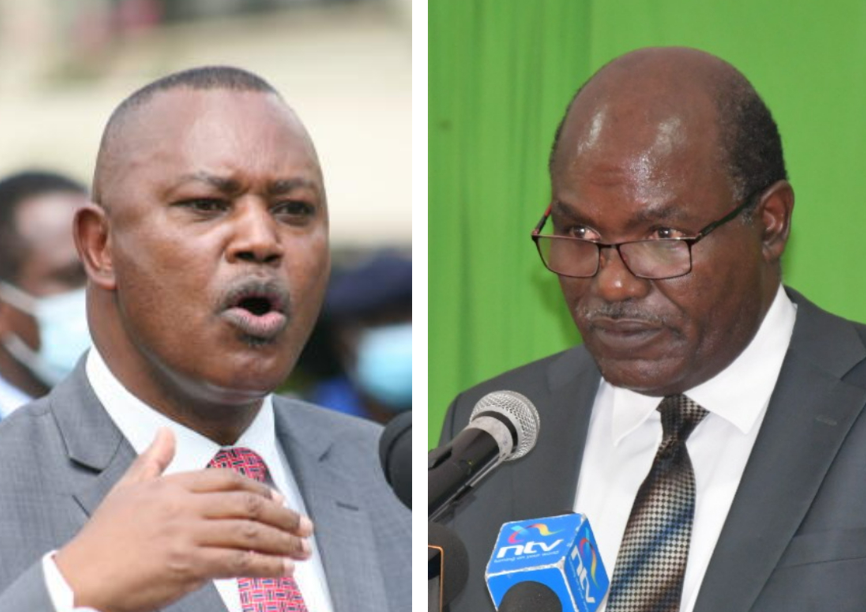
DEAF EARS: Former DCI Director George Kinoti tried saying the Venezuelans were rigging elections to no avail
He had struck a deal with the then Home Secretary Priti Patel and British High Commissioner to Kenya Jane Marriott on how the elections were going to be rigged, and Lord Malloch-Brown being a British aristocrat was more than willing to see this objective to fruition.
Ruto bought the loyalty of corrupt IEBC officials led by Wafula Chebukati and leveraged international support to counter Odinga’s plans.
Ruto outmaneuvered Odinga by ensuring Smartmatic’s systems were closely monitored or manipulated in his favor. The IEBC’s verification process, comparing physical and electronic result forms, was described as transparent but contentious. Odinga’s team claimed “massive irregularities” and foreign access to IEBC data, pointing to Smartmatic’s technology as a vulnerability. The equally corrupt Supreme Court upheld Ruto’s victory, finding no evidence of fraud.
Ruto’s alignment with external actors, Western interests wary of Odinga’s unpredictability, neutralized Smartmatic’s potential for manipulation in Odinga’s favor and to his. Ruto’s 50.49% victory over Odinga’s 48.85% was narrow. Ruto’s strategic alliances and grassroots support among groups like the Kikuyu community tipped the balance.
The Outcome and Its Implications
Odinga’s gamble on Smartmatic backfired. Instead of securing his victory, the company’s involvement amplified distrust in the electoral process. His decision to engage a firm notorious for rigging Venezuela’s elections invited scrutiny and provided ammunition for opponents. Ruto capitalized, framing himself as a victim of establishment rigging protocols, resonating with his base.
Smartmatic’s systems in Venezuela were exploited due to weak oversight and political interference. In Kenya, concerns about transparency and foreign involvement persisted despite IEBC efforts. Odinga’s claims of a “stolen victory” echoed Venezuelan opposition, but his Supreme Court petition failed without evidence.
This underscores the dangers of electoral technology in politically charged environments. Smartmatic’s history in Venezuela shows advanced systems can be manipulated without safeguards.
Odinga’s belief he could control Smartmatic’s technology was a miscalculation, overshadowed by Ruto’s alliances and populist appeal. The 2022 Kenyan election, like Venezuela’s polls, shows how technology, foreign influence, and political maneuvering erode trust in democracy. Smartmatic’s Venezuelan legacy shaped perceptions.
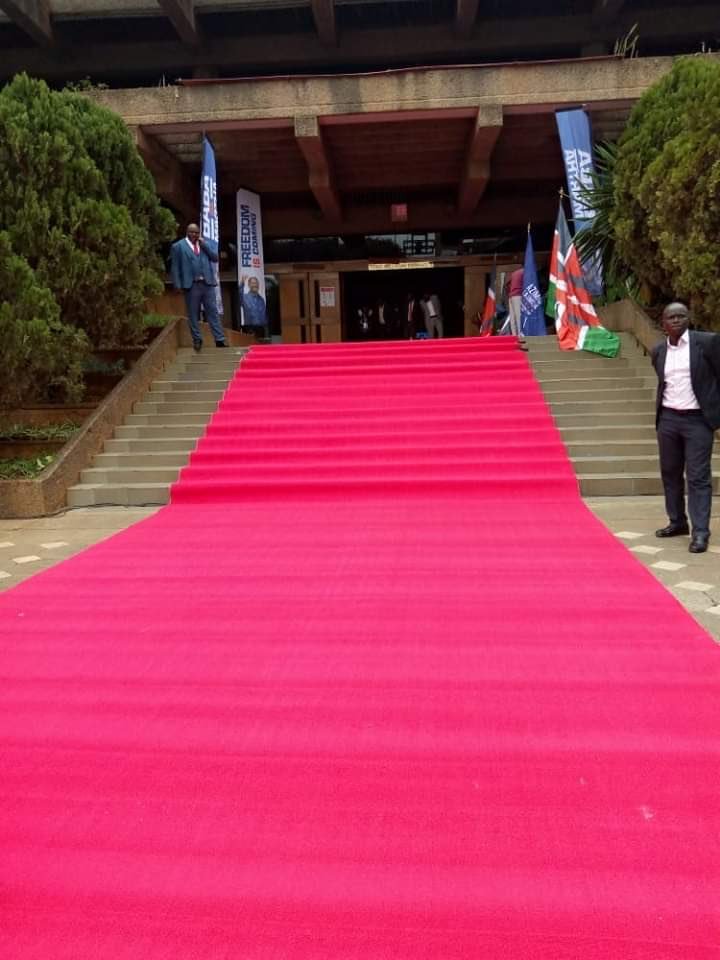
AZIMIDIOTS: So confident was Raila that he had even rolled out the red carpet to announce his own victory
The 2022, Smartmatic deal was worth KSh 4 billion from the Independent Electoral and Boundaries Commission (IEBC) to supply 10,000 Kenya Integrated Election Management Systems (KIEMS) kits and software, replacing OT Morpho. The election saw Odinga (Azimio la Umoja) face off against William Ruto (Kenya Kwanza).
Odinga pushed for a manual voter register to counter potential technological failures, while Ruto endorsed the electronic system. After Ruto’s victory, Odinga exposed irregularities, revealing that the IEBC blocked access to Smartmatic’s servers despite a court order.
Smartmatic refused access, citing intellectual property rights, to conceal evidence of rigging. The IEBC and Smartmatic claimed tally reports were publicly available, but the Supreme Court’s decision to uphold Ruto’s win ignored the tampering.
Following the 2022 election, Smartmatic’s global head visited Kenya to manage the fallout from the server controversy. NTV Kenya’s James Smart interviewed him but deliberately avoided questioning the server issues, protecting Smartmatic’s role in the fraud. Smart’s silence stemmed from direct instructions to shield the company, reflecting broader media complicity in Kenya’s electoral manipulation. The executive’s visit was a calculated move to deflect scrutiny and maintain Smartmatic’s influence.
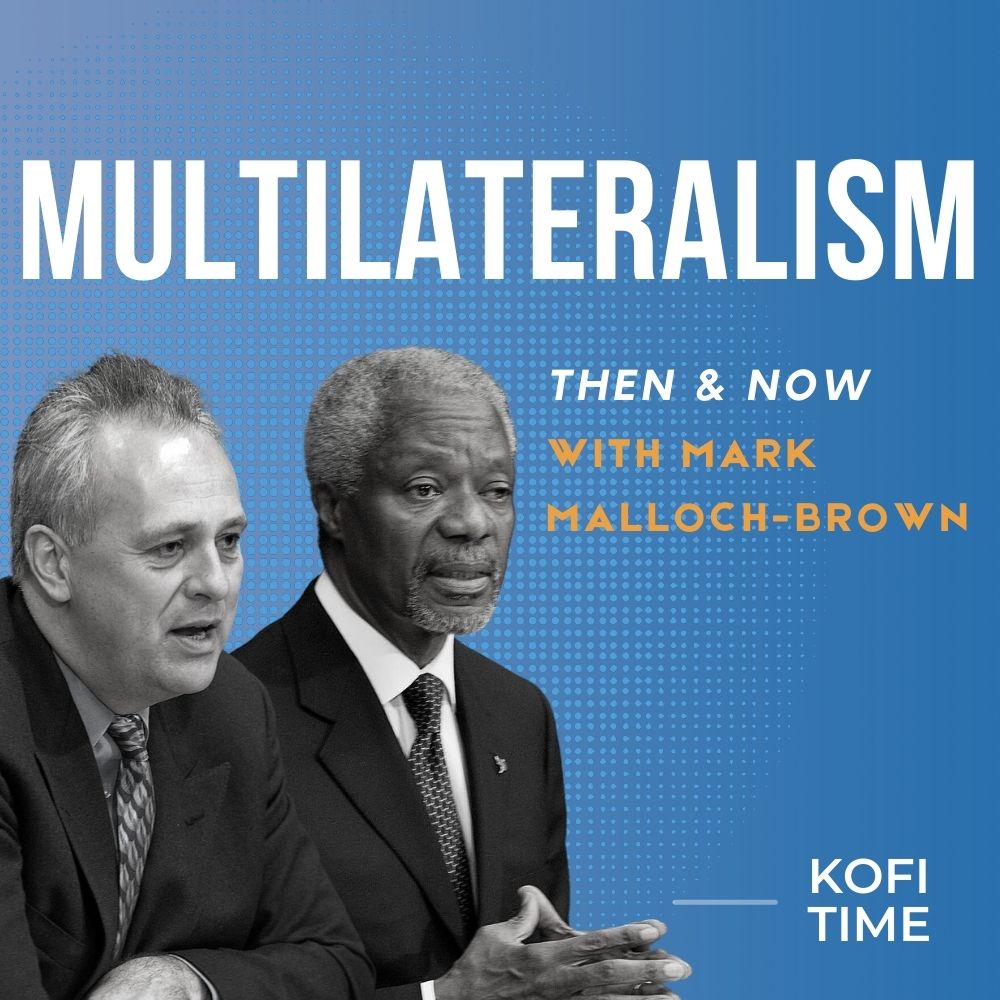
Elections rigging expert Lord Malloch Brown has been hawking unscrupulous ideological agenda and conducting experiments like the grand-coalition government for the last three decades
Mark Malloch Brown’s orchestration, from his 2008 mediation to his 2017 meeting with Odinga, enabled Smartmatic’s infiltration of Kenya’s elections. Odinga’s facilitation of Smartmatic’s contract ensured a rigged outcome that favored Ruto. Smart’s failure to challenge Smartmatic’s executive cemented the cover-up.
This intricate network of global and local actors has systematically undermined Kenya’s democracy, manipulating elections and public perception to serve a hidden agenda. The evidence is clear, and Kenya’s political future remains under the shadow of these machinations.
VIDEO: Interview of Lord Mark Malloch-Brown by NTV’s James Smart
https://youtu.be/W0ytM9NMuZs?si=kgX-CpQLBhaMp-bX
